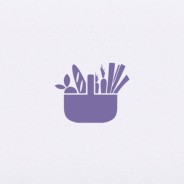Posted by Diane Morrow on in

In the fall of 2010, for one week, I made a point of tracking searches to One Year of Writing and Healing recording some of these. During this particular week in early November, a little over 200 people visited the site. Someone in Hanoi got there by searching for the Yeats’s poem, “The Lake Isle of Innisfree.” Someone in Pine Lake, Georgia arrived via “healing poetry.” A person in Bombay searched for the story “Grief” by Anton Chekhov. Someone from Tyler, Texas searched at 2AM for “writing grief.” And someone in Perth, Australia reached the site by one of its more popular searches and a poem I’ve come to appreciate more and more as the years go by—the poem, “The Guest House,” by Rumi. Here are the first twelve lines: This being human is a guest house. Every morning a new arrival. A joy, a depression, a meanness, some momentary awareness comes as an unexpected visitor. Welcome and entertain them all! Even if they’re a crowd of sorrows, who violently sweep your house empty of its furniture, still, treat each guest honorably. He may be clearing you out for some new delight. I’ve come to appreciate Rumi’s poem for the way in which it offers company. A person might think in the middle of the night that they’re alone with sorrow, or with some other unexpected and difficult visitor, but the simplest of searches could bring any one of us to the poets, many of whom have been there long before us. Rumi, a Persian poet, wrote in the thirteenth century. I can’t imagine him having written this poem without some deep and long familiarity with difficult emotions. And then that breakthrough. Emotions as guests? The possibility of extending true hospitality toward them? And how wonderful that a guest might arrive with such a useful broom. This metaphor of a guest house—this idea of welcoming whatever comes in the twelfth month and finding a way to hold it for the time being—this also emerged out of revision. There is much yet to be done with this room. Meanwhile, it’s a metaphor—an idea—this notion of trying to welcome what comes. Full text of Rumi’s poem can be found here. Photo from Wikimedia...
read more



